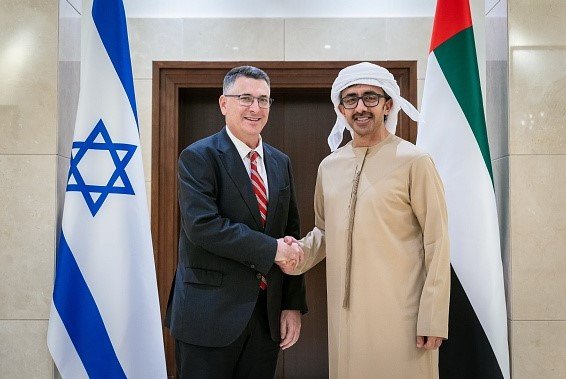The United Arab Emirates has quietly shifted its stance on key Middle Eastern issues, aligning itself more with Israeli priorities than traditional Arab concerns. From Syria’s leadership to Gaza’s future, Abu Dhabi’s foreign policy now echoes Tel Aviv’s playbook—raising eyebrows about the UAE’s role in the Arab world.
The region is watching closely. The UAE’s new approach goes beyond simple alliances with Western powers; it reflects a deeper change in how Abu Dhabi views its place in Arab affairs. The question on many lips: Is the UAE still acting as an Arab leader, or has it become a regional echo of Israeli strategy?
From Arab Unity to Israeli Alignment: A New Voice in Abu Dhabi
It wasn’t always like this. Historically, the UAE stood firm on Arab solidarity, championing unity and support for fellow Arab nations in crises. But over the past few years, there’s been a noticeable pivot. The UAE’s foreign policy has grown more synchronized with Israel’s interests, leaving many to wonder if it’s abandoning its Arab roots.
This shift is especially clear when it comes to Syria. In a recent interview with Fox News, UAE Foreign Minister Abdullah bin Zayed expressed skepticism about Syria’s government, saying, “It’s too early to talk about trust in Syria’s legitimate president; we need to verify their messages.” That sounds oddly familiar — because it’s basically a rehash of what Israeli officials have been saying for years.
Just days earlier, Israeli Prime Minister Benjamin Netanyahu declared that Syria’s regime “cannot be trusted unless it commits to the Abraham Accords and guarantees Israel’s security.” The UAE’s foreign minister echoed this statement almost word for word—without so much as a nod to Arab interests or the devastating toll Syria has suffered since 2011.

No mention of displaced families, no reference to reconstruction efforts, no acknowledgment of Syria’s historic role in the Arab world. The UAE’s concern seems laser-focused on one thing: Does Syria serve Israel’s security concerns?
Gaza’s Disarmament Over Humanitarian Concerns?
The alignment isn’t limited to Syria. Abu Dhabi’s foreign messaging has also taken on a tougher tone about Gaza, reflecting a hardline Israeli stance that demands disarmament of Palestinian groups before any real progress.
This posture raises difficult questions. Gaza’s humanitarian crisis has drawn international outcry, yet the UAE’s statements tend to prioritize Israeli security demands over the plight of Palestinian civilians.
Abdullah bin Zayed has called for the disarmament of Gaza factions, reinforcing Israel’s insistence on a demilitarized Gaza as a precondition for peace. But what about the ongoing suffering of ordinary people caught in the crossfire? This silence is deafening.
Some might argue that focusing on security first is practical. But critics say it ignores the human side, risking further alienation of Palestinians and eroding the UAE’s credibility in the Arab world.
Saudi-UAE Divide: Different Approaches to Syria
While the UAE hardens its stance, Saudi Arabia has taken a more conciliatory approach to Syria. Riyadh’s recent moves to mend fences with Damascus signal a willingness to restore Arab ties and address regional stability in broader terms.
This divergence between the Gulf powers is striking. Saudi Arabia’s reconciliation efforts are motivated partly by its religious influence and desire to unify the Arab bloc. Meanwhile, the UAE’s position—sometimes even more stringent than Israel’s—raises questions about what Abu Dhabi hopes to achieve.
Is the UAE’s tougher line on Syria an attempt to curry favor with Israel or its Western allies? Or is it a strategic gamble aimed at carving out a unique role in regional politics?
The Regional Impact of Abu Dhabi’s Policy Shift
The UAE’s evolving foreign policy has consequences beyond diplomatic statements. It impacts how Arab populations perceive the Gulf states, especially given the UAE’s rising influence economically and politically.
Many Arab citizens expect their leaders to prioritize Arab solidarity, humanitarian concerns, and shared history. When Abu Dhabi sidesteps these priorities in favor of Israel’s agenda, it risks alienating Arab publics and damaging long-term regional cohesion.
What Does This Mean for the Future?
Will the UAE’s stance continue to evolve in line with Israel? Or will there be pushback from Arab nations and their people?
Only time will tell. But it’s clear that Abu Dhabi’s foreign policy is carving out a distinct path, one that distances itself from traditional Arab solidarity in favor of a security-first approach that mirrors Tel Aviv’s views.
For now, the UAE finds itself at a crossroads — its next moves will shape its reputation and role in a region that is still trying to find peace amid old wounds and new alliances.
